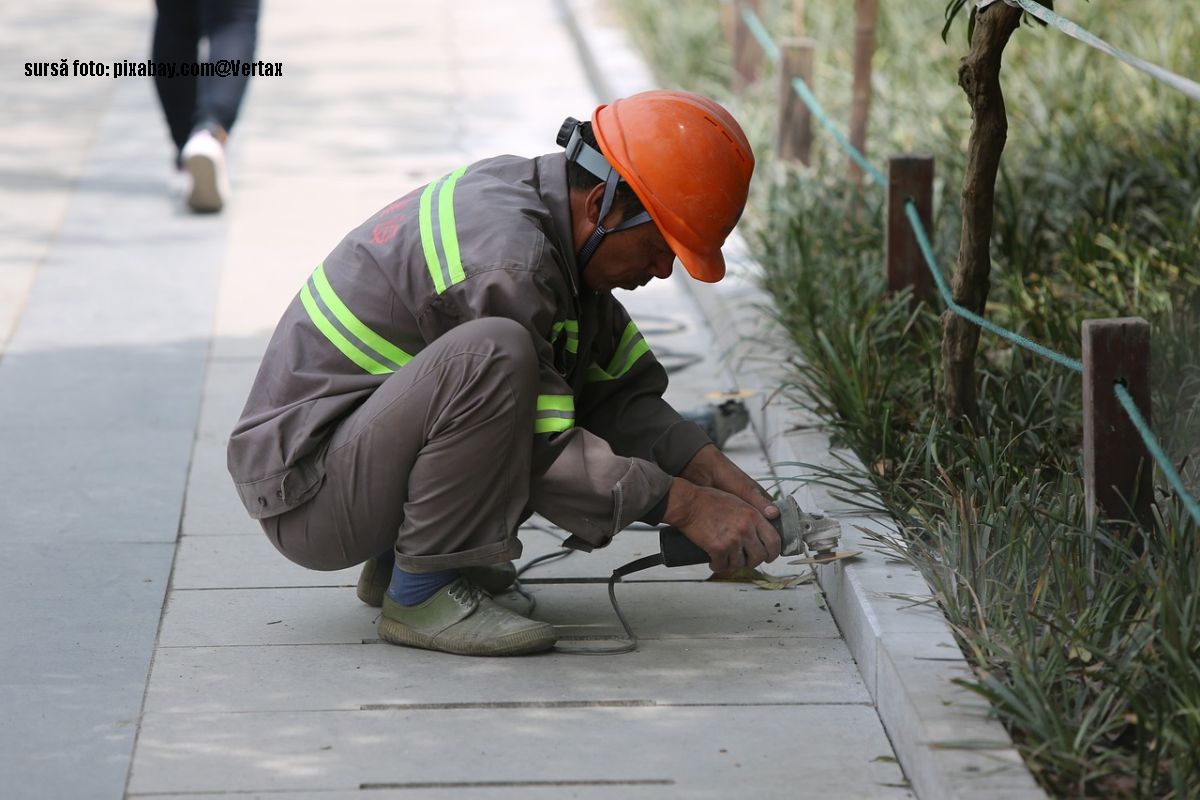Romania’s new faces
A look at Romania's latest efforts to complete its workforce and the new challenges it has to face

Daniel Bilț and Iulia Hau, 18.09.2024, 14:00
Romania has been facing a workforce deficit for quite some time now, created by a negative birthrate, a dramatic ageing of the population and a massive inflow of migrants. That is why, in recent years, finding a solution to the problem represented a priority for the Romanian Government, given the workforce shortage in certain fields. That explains why Romanian streets, from the regional capitals to the small country towns, today look different than they looked a couple of years ago. In the confectioner’s shop windows, riding the food delivery bicycles, in the restaurant kitchens and in all sorts of factories, as we speak, people from afar have a job. All their hopes are pinned on Romania.
That is why in each of the last three years, 2022, 2023 and 2024, a contingent of 100,000 work permits was approved of, for workers from non-European countries.
Other data pointed to the fact that the number of work permits Romania issued to Sri Lankan citizens in 2022 accounted for more than 50% of the total number of such permits issued to Sri Lanka in the entire European Union. According to data provided by the General Inspectorate for Immigration, in 2023, 101, 253 work permits were issued for citizens from outside the European Union. Most of such workers were from Nepal, over 23,000, Sri Lanka 22,000, Bangladesh 18, 000, and Pakistan, over 8,250. The same data point to a significant gender gap: in 2023, almost 90% of the newcomers are men. Of the main fields these workers are employed in are tourism and the hospitality industry, factories, equipment, construction, cleaning.
Notwithstanding, we find it hard to tackle the topic of the foreign works ignoring the issue of their right to fair and safe working conditions, capable of protecting them from the employers’ prospective abuses.
Quite a few of the press articles and investigations that have been recently published highlight how the vulnerability circumstances of these people, in a country whose language and legislation they do not know, expose them to exploitation, fraudulency and illegality circumstances. Many times, that happens for reasons they are not responsible for. Oftentimes, the foreign citizens pay rip-off sums to the go-between employment agencies, which, for them, translates into loans ranging from 4,000 to 10,000 Euros. They plan to return the sums in installments provided by the wages they get in Romania. When asked how it was possible for them to make the loans, foreigner answered they pawned family jewels, sold their plots of land, went to the bank or guaranteed with the legal documents of the houses and plots of land where their families lived.
Such circumstances have placed them in a dependence relationship with the Romanian employers, who can infringe upon their fundamental rights. Anatolie Cosciug is a researcher and deputy director of the Comparative Studies Migration Center. Here he is, speaking about the abuse cases as they have been highlighted in the surveys:
Anatolie Cosciug: “We tried to find out whether those cases of abuse we’ve heard of – including from other researches, other reports – are exceptions or isolated cases or it’s actually a system thing; and if it’s a system thing, why is this happening? Here there are factors of migration or social policies in general, so not only about migration, but as we are organized as society. This is rendering immigrants and people who came to work here, very vulnerable. And I proposed to have an approach centered on human rights. This is surreal somehow as nobody speaks about them as people with rights, who are vulnerable and need protection to some extent. This seemed absolutely exceptional – in the interviews with them, the NGOs and other stakeholders – no one has this human rights approach.”
Asked about the main abuse cases he discovered, Anatolie Coşciug answers:
Anatolie Cosciug: “We tried to tackle all the human rights, the main forms of human rights and see what the situation is for each of them and identify specific cases for each of these rights. So, we took for instance, the right to a decent job, to a decent dwelling place, family rights, education. And surprisingly or not, we found out situations in which some of these rights were being violated, particularly in the case of dwelling. There were difficult situations in this respect, you know. Most of them said they were living in overcrowded areas and there were extreme cases in which people didn’t have access to water, the right type of food for the efforts they are making. There are also cases in which these human rights infringements aren’t that visible, you know. Such as those regarding family reunification, which involves very complicated procedures and is not encouraged by the employer, their governments or the Romanian government.”
Many believe that improvements are not going to appear very quickly; that all the sides involved, from institutions to the private environment, including the collective outlook, – we all have a long road to walk in order to learn how to have a healthy approach towards the new-comers.
(EN&bill)






























